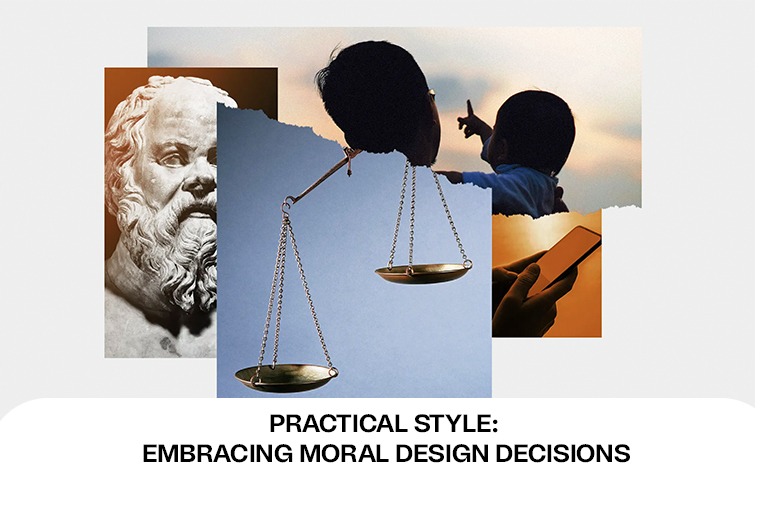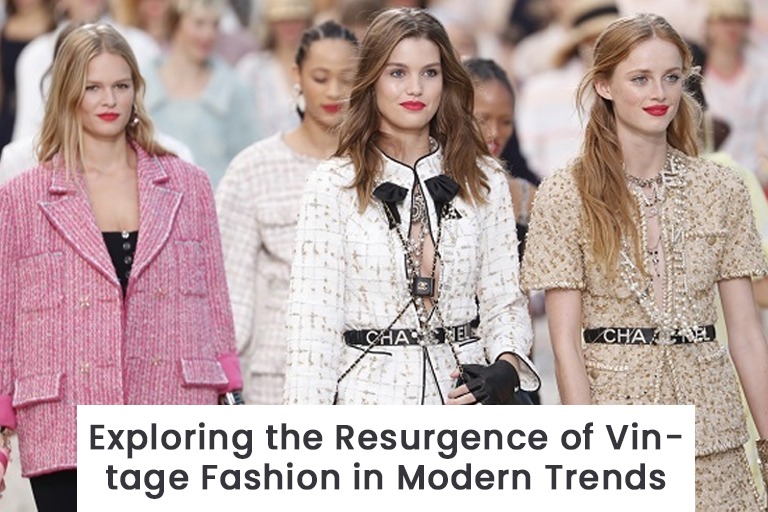As of late, the design business has been under a magnifying glass for its negative ecological and social effects. As purchasers become more aware of their decisions, the interest in practical and moral design has fundamentally expanded. Maintainable style goes past patterns and spotlights on pursuing mindful decisions that decidedly affect the planet and individuals associated with the design inventory network. Embracing moral design decisions not just permits us to communicate our style yet, in addition, adds to a more reasonable and fair future for the business. In this article, we will investigate the significance of economical style and talk about how we can go with cognizant and moral design decisions.
1. Understanding Economical Style:
Economic style envelops a scope of practices that mean to limit mischief to the climate and advance social obligation. It includes considering the whole lifecycle of a piece of clothing, from its creation to its removal. By embracing reasonable style, we can diminish our carbon impression, monitor normal assets, and back fair work rehearses.
2. The Force of Buyer Interest:
Shoppers assume an urgent part in molding the style business. By requesting reasonable and moral design, we can impact brands to take on additional dependable practices. Expanded purchaser mindfulness and backing for manageable design have proactively provoked many organizations to focus on maintainability and straightforwardness in their activities. By effectively picking a manageable style, we can urge more brands to stick to this same pattern, at last changing the business all in all.
3. Educating Ourselves:
To go with educated and moral style decisions, it’s fundamental to teach ourselves about the issues encompassing the business. Find out about the ecological effect of material creation, the social ramifications of quick style, and the significance of fair exchange and laborers’ freedoms. By remaining informed, we can all the more likely comprehend the results of our decisions and go with additional cognizant choices about our dress buys.
4. Mending and Upcycling:
One more method for embracing a manageable style is through retouching and upcycling. Rather than disposing of harmed pieces of clothing, consider fixing them or reusing them into new things. This decreases squandering as well as empowers inventiveness and cleverness. There are various instructional exercises and online networks that offer direction and motivation for repairing and upcycling projects.
5. Renting and Acquiring:
Leasing garments has become progressively famous as a method for getting a charge out of recent fads without adding to overabundance utilization. Clothing rental administrations permit us to get various pieces of clothing for unique events or regular wear, diminishing the requirement for steady buying. Likewise, getting garments from companions or relatives for explicit occasions can assist with encouraging a culture of sharing and lessen the interest in new things.
6. Advocating for Change:
Past our own decisions, we can likewise advocate for foundational change in the style business. Support associations and missions that champion economic and moral style rehearses. Write to brands, policymakers, and powerhouses, encouraging them to focus on manageability and straightforwardness. By utilizing our voices, all in all, we can make a more grounded push for change and support the reception of more moral design rehearses for a bigger scope.
7. Collaboration and Development:
The shift toward a manageable style requires cooperation and development across the design business. Brands, producers, originators, and customers should meet up to find savvy fixes that focus on both natural and social obligations. This can include investigating new advancements, embracing round economy models, and carrying out manageable inventory network rehearses. By cooperating, we can speed up the change of the style of business into an additional reasonable and moral one.
8. Fashion Rental Stages:
Design rental stages have acquired notoriety as of late as a reasonable option in contrast to claiming garments. These administrations permit people to lease top-notch pieces of clothing for a particular period, lessening the requirement for steady buying. By using design rental stages, we can explore different avenues regarding various styles and patterns without the natural and monetary effect of purchasing new garments. This advances a round economy model, where garments are shared and reused, limiting waste and boosting the life expectancy of pieces of clothing.
9. Capsule Closets:
Making a case closet is a reasonable and manageable way to deal with style. A container closet comprises an organized assortment of flexible, immortal pieces that can be blended and matched to make various outfits. By zeroing in on quality, strength, and flexibility, we can decrease our general utilization and limit the effect of our closet on the climate. Building a case closet urges us to put resources into very much-made pieces of clothing that will endure longer, decreasing the requirement for incessant substitutions.
10. Transparent Stock Chains:
Supporting brands that focus on straightforwardness in their stock chains is fundamental for going with moral-style decisions. Straightforward brands give data about their obtaining, and creation processes, and the effect they have on specialists and the climate. This straightforwardness permits purchasers to pursue informed choices and back brands that line up with their qualities. Moreover, drives, for example, blockchain innovation are being utilized to follow and confirm the genuineness and moral obtaining of items, furnishing buyers with more prominent trust in their buying choices.
11. Ethical Extras:
Feasible style goes past the dress and stretches out to adornments also. While picking adornments, decide on those produced using eco-accommodating materials like reused metals, practical wood, or vegetarian calfskin. Support marks that guarantee fair exchange rehearses for craftsmen and experts associated with delivering the frill. By embracing moral extras, we can finish our feasible outfits and advance mindful design decisions comprehensively.
Conclusion:
Manageable style and embracing moral design decisions are fundamental pieces of building a more supportable future for the design business. By leasing garments, organizing case closets, supporting brands with straightforward inventory chains, picking moral frills, and perceiving the force of style as an impetus for transformation, we can have a constructive outcome on the climate and advance social obligation. Allow us to keep on learning, adjust, and move others on this excursion toward a more manageable and moral style scene. By embracing reasonable style, we can genuinely change how we associate with and consume design
Read more – Unveiling the Athleisure Wear Evolution: Comfort Meets Couture
Read more – 5 NATURAL SKIN CARE TIPS YOU CAN TRY AT HOME




